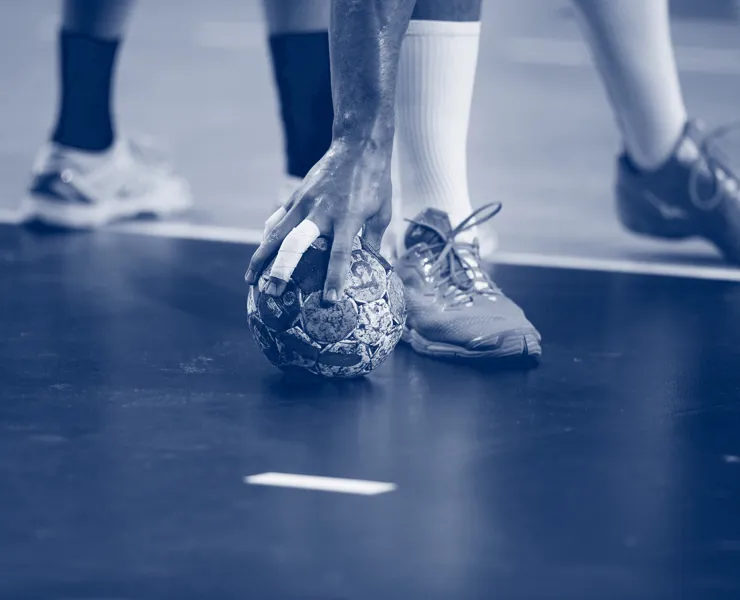Sabaté’s first test comes early, as the Czech Republic aim to qualify for the IHF Men’s World Championship for the sixth time in the last 23 years. They withdrew from the 2021 tournament in Egypt due to an outbreak of Covid-19.
“I have known the president of the Czech Handball Association from my time in Orlen Wisla Plock, where he played between 2018 and 2020. When he first called me to pitch the opening in the men’s senior team, I was immediately interested,” says Sabaté.
“The canvas is big and there is a lot of work ahead, but there is a lot of talent in the team and we are really aiming to improve everything together with the players. It is also a learning curve for me, because, as a coach, you need to adapt to what the strengths of the team are,” he adds.
The 45-year-old Barcelona native is no stranger to having to work under pressure and to lead a national team. Between 2016 and 2017, he was the Hungary men’s national team coach, where he replaced Talant Dujshebaev.
Sabaté cut his teeth at Telekom Veszprém HC, where he coached between 2015 and 2017. He will also continue as the head coach of Orlen Wisla Plock, the Polish powerhouse which has earned a quarter-finals berth in the EHF European League Men.
As Czech coach, Sabaté will make his debut at a do-or-die doubleheader against North Macedonia, in part 2 of qualification phase 2 for the 2023 World Championship in Poland and Sweden at 20:15 CEST on Wednesday 13 April.
The Macedonians, coached by the all-time great Kiril Lazarov, eliminated Romania with a 52:46 aggregate win in part 1 of qualification phase 2 and will be vying to progress to the final tournament which will take place next January.
“Lazarov is a great player, a huge character, with a lot of experience. He has learnt a lot from all the great coaches he has played for. And he still plays now, which is always an advantage for North Macedonia.
“But being a coach is a totally different job than being a player. You can be a huge player, but not a good coach. Sure, he will probably be amazing, but, in my opinion, there are two different jobs,” says Sabaté.
Looking to the future
Although Sabaté is not under immense pressure to qualify his team for Poland and Sweden 2023, earning the ticket would ease his transition into the squad. The Czechs finished 13th at the EHF EURO 2022, exiting the group phase after a win against Bosnia and Herzegovina, a loss against Spain and a hard-fought draw against the future champions, Sweden.
The lesson was that the Czech Republic have a good generation on their hands, who can only grow provided the right approach is taken in the near future. Sabaté’s appointment was directly linked to these plans, as the Spanish coach was pinpointed to be the right man to lead the Czech side one step further.
“Of course we would be very happy to qualify for Poland/Sweden 2023. This is the objective in the short term, but in the medium and long term, we want to build a good team that can become even stronger than now. You have surely seen how other sides have been improving and this is also our aim,” adds Sabaté.
That does not mean that the Czech Republic men’s senior national team will directly morph into a version of ‘Los Hispanos’, the team which won the EHF EURO in 2018 and 2020 and finished second in 2022.
Sabaté knows that, and will surely make the right adjustments. He has worked in Central Europe over the past decade, knows the style of play, and his experience from Hungary and Poland will surely help to push the right buttons and extract the top performances from his players.
“The particularities are more or less the same. There are Czech players who played in Hungary and there is a similarity in the style and the mould of the players in the countries I coached. What we need to do is to maximise their potential and create a system where they can thrive,” concludes the Spaniard.







